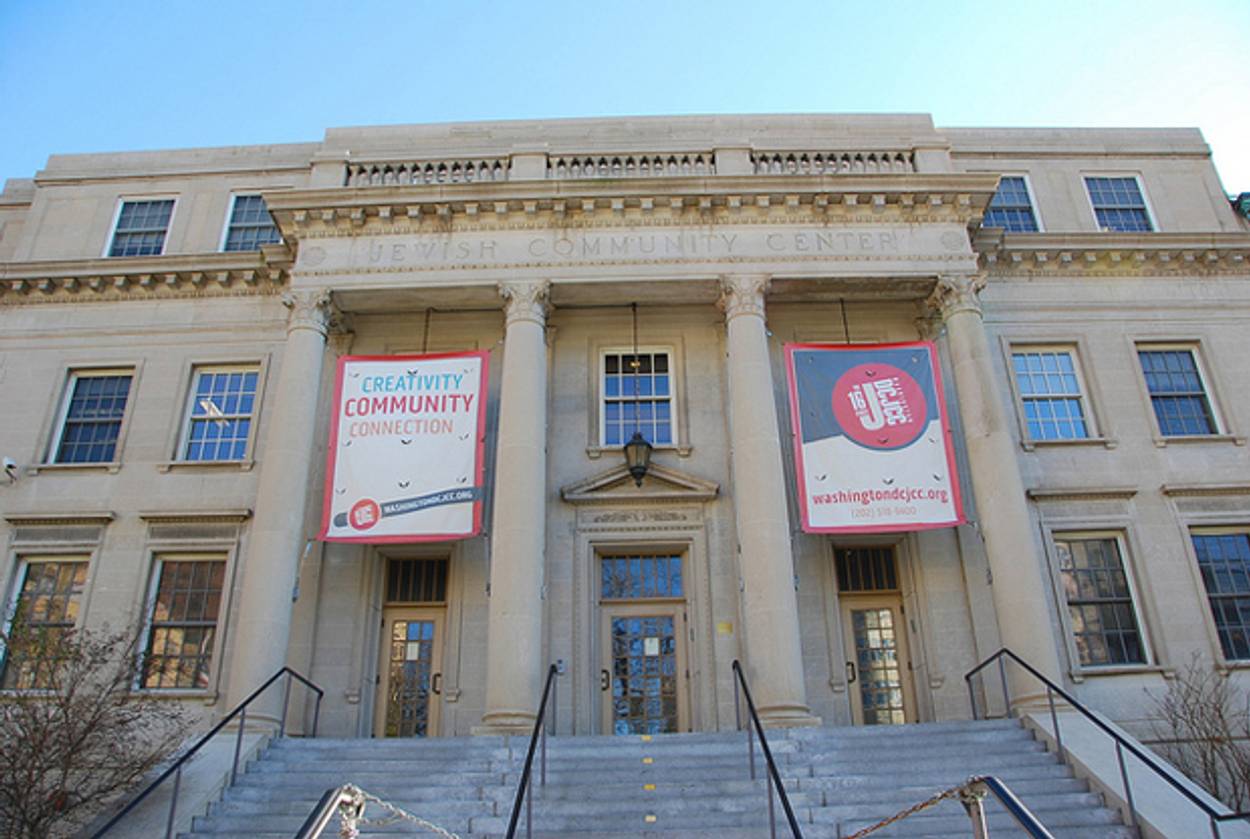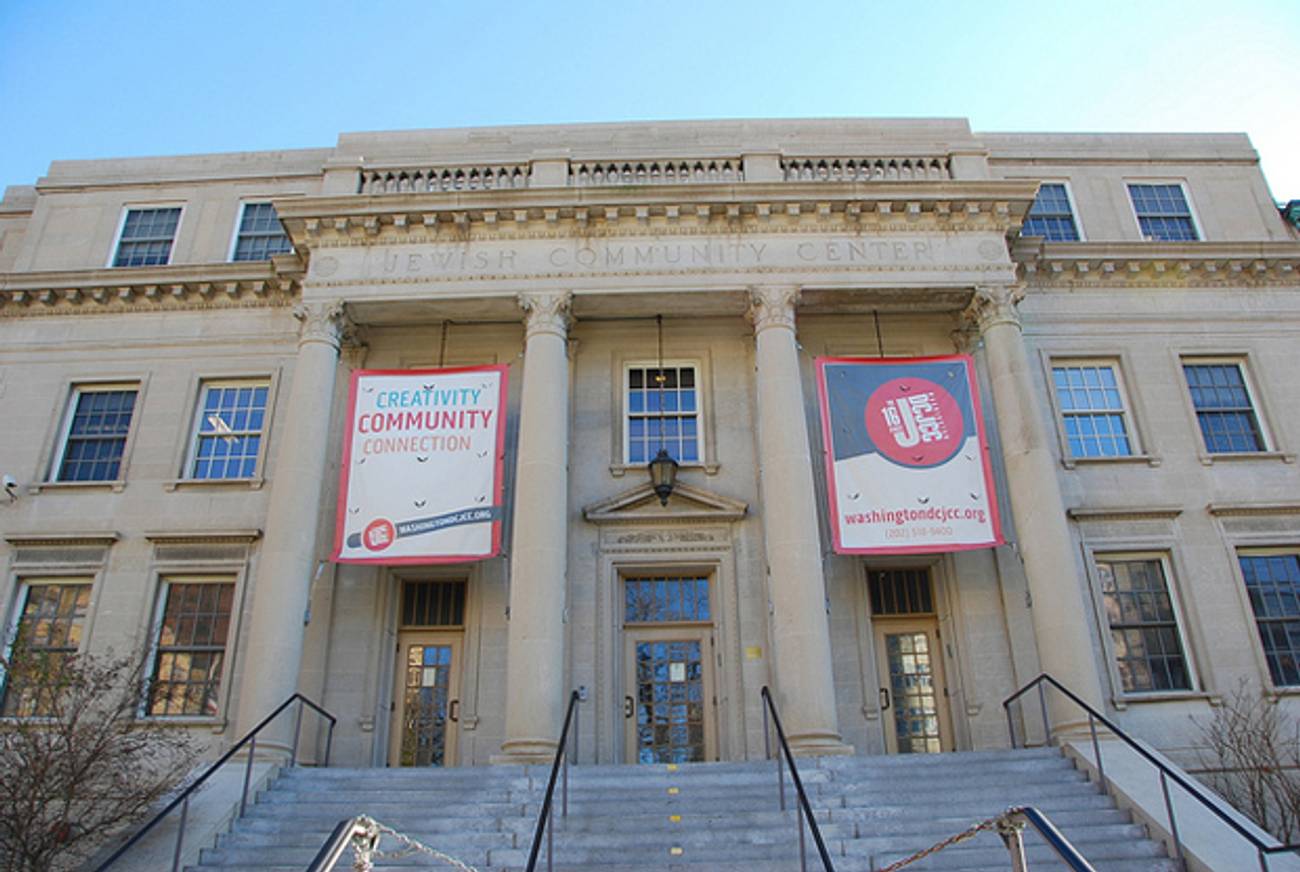Why Ari Roth Got Fired From Theater J
The story behind the ‘irreconcilable’ differences




In Ari Roth’s recollection, 2009 was the turning point for Theater J. That was the year that a small, vociferously pro-Israel group called COPMA (Citizens Opposed to Propaganda Masquerading as Art) staged its first protest against the theater. They planned it around Theater J’s reading of Caryl Churchill’s play Seven Jewish Children. It wasn’t a deeply threatening event at the time, Roth recalls, but in subsequent years, COPMA’s antagonism would become formidable and would initiate a spiral that ended with his firing last week as Theater J’s artistic director of eighteen years.
Housed within the Washington, D.C. JCC, Theater J had produced bold work for years: shows that filled the theater, made profits, and received high critical and audience praise. Each season presented plays from both Jewish and non-Jewish playwrights that directly or subtly tapped into elements of Jewish identity. In 2000, Roth created a festival of readings called Voices from a Changing Israel that portrayed aspects of Israel’s politics, culture, and spirit. The festival later revised its name to Voices from a Changing Middle East to encompass Palestinian and Muslim voices. There was no backlash at the time, Roth says.
In 2009, that began to change. The narrative about Israel became narrower.
COPMA–a group of five that decry works of art that “denigrate Israel”–attempted to coerce the Jewish Federation of Greater Washington, a significant source of funding, to cut off the Washington, D.C., JCC or at least to “propose programmatic guidelines on beneficiary agencies,” Roth says. They wrote letters to Carole Zawatsky, the Washington, D.C. JCC’s CEO, and to members of the board. They reached out to Jewish individuals across Maryland.
During this time, Theater J continued to produce plays and readings. One play, Return to Haifa, was also protested by COPMA, yet the production performed well. It played to full houses, had widely-attended talkbacks, received accolades, and made a profit.
Zawatsky agrees that Return to Haifa was an important production for Theater J, as was The Admission, another play about Israel (and written by an Israeli playwright) that was among the theater’s most controversial. “I want to be very clear that Ari’s leaving the DCJCC was not about politics,” Zawatsky says. “It was not about any of the work that was presented. The Washington, D.C. JCC stood firmly behind Return to Haifa, stood firmly behind The Admission and has supported some challenging works from Israel on a regular basis and will continue to do so.”
Further, she says, “COPMA’s impact on the DCJCC is zero. I’m going to say that the press writing about COPMA has given COPMA a far bigger platform than the five people who make up COPMA ever should have had.”
Zawatsky and Roth are in agreement that COPMA’s backlash did not lead to punitive results from Jewish Federation. As Roth notes, however, the ardent attempts of COPMA had become a time-consuming and worrisome distraction. “The CEO made the case that she was spending an undue amount of time [on it],” Roth says. “The JCC is a business of 21 programs, and one might say that Theater J was changing the image of the JCC from its omnibus all-purpose organization to something that had a strong progressive theatrical identity.” As a community organization, the Washington, D.C. JCC has its own mission to fulfill, one that incorporates the arts but need not be led by a particular artistic vision.
Beginning to see their differences as irreconcilable, Roth had talked with Zawatsky about the possibility of leaving Theater J in the spring. “As we were contemplating a separation at the end of this season, we were assuring the staff that whether they chose the theater I was hoping to set up or the JCC that they would be taken care of,” Roth says. That separation might have been a calm resolution, but on Thursday, December 18, Roth told the Washington Post he had been fired for the stated reason of “insubordination.” (Roth told me he had circuited the DCJCC’s PR firm to correct an article stating that Theater J had canceled its Voices festival this year; Roth wanted to assert that the decision to cancel it was not his own, but the Washington, D.C. JCC’s.)
Roth now finds himself in the position of building a new company earlier than anticipated. His new venture, Mosaic Theater Company, will be located at Atlas Performing Arts Center in D.C., and Roth hopes to begin as soon as next fall. For now, Theater J is under the helm of associate artistic director Shirley Serotsky. Serotsky will also direct Theater J’s upcoming play The Call, from which the previous director, Jennifer Nelson, pulled out in solidarity with Roth.
Since the firing, the response in support of Roth has been tremendous, perhaps unprecedented in the arts. A letter signed by more than 90 artistic directors around the country expressed their support for Roth. Another open letter, this one from the Institute for Policy Studies in DC and Split this Rock, an arts organization, states, “Art, too, functions to humanize others, to remind us of what we have in common as a people…If we cannot defend the cultural front, we have no chance on the political battlefields.”
While numerous supporters of Roth have accused the Washington, D.C. JCC of artistic censorship, Roth acknowledges that inside the organization the sentiment is very different. “No one feels that they’re engaging in censorship,” he says. “They feel that it’s an internal matter.” Roth does believe, however, that the narrowing message about Israel from major Jewish organizations had begun to feel constraining. Following Israel’s harrowing summer, it seemed to Roth that “we were unable to express sadness on both sides.”
Whether or not that milieu was manifest at the Washington, D.C. JCC, Zawatsky expresses a similar perspective on Israel. She says, “We as a community center stand firmly with Israel. Support for Israel, just like patriotism, does not mean that you agree with every decision that your government makes.”
While plays like Return to Haifa and The Admission emphasized a left-leaning view of Israel, there were also plays at Theater J that upheld key figures from Israel’s government and military, like Golda’s Balcony (Golda Meir) and To Pay the Price (Yoni Netanyahu). And, indeed, most of Theater J’s plays each year are set against the backdrop of America, not Israel.
For Roth, there is undoubtedly a painful process in leaving his home of nearly two decades and starting a new venture from the ground up. There are funds to raise and staff members to hire. But it isn’t the first time he’s taken a program of his creation outside of its original home. The Middle East Café, a forum for discussion on the Middle East co-founded by Roth and formerly held at the Washington, D.C. JCC under the name Peace Café, transferred to the D.C. restaurant Busboys and Poets and continues to meet there.
Mosaic Theater Company will be a much bigger endeavor, of course; one that feels bittersweet yet purposeful. “I think we’re actually moving to a more healthy time with more diversity of voice,” Roth says. “What’s best here is that people are engaged with the issue. I think this is, potentially, a rich, fertile time.”
Zawatsky declined to offer further specifics about the end of Roth’s tenure. What she does affirm is that “the DCJCC and Theater J remain deeply committed to doing work by Israeli playwrights, thought leaders, musicians like Achinoam Nini and David Broza, and writers like David Grossman. None of that has or will change.”
Previous: Behind the Madoff Play’s Cancellation
Lonnie Firestone writes about theater, and lives in Brooklyn, New York.